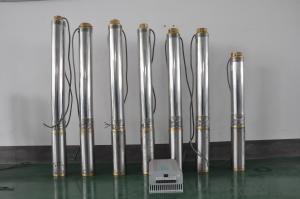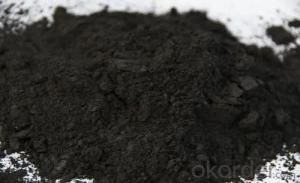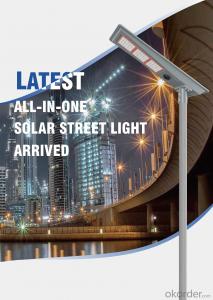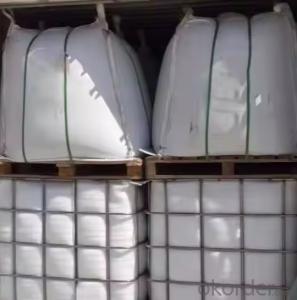Solar Water Pump 3DS-10-100
- Loading Port:
- China Main Port
- Payment Terms:
- TT OR LC
- Min Order Qty:
- -
- Supply Capability:
- 300 sets /month
OKorder Service Pledge
OKorder Financial Service
You Might Also Like
Product description:
Product: Solar water pump
Model:3DS-10
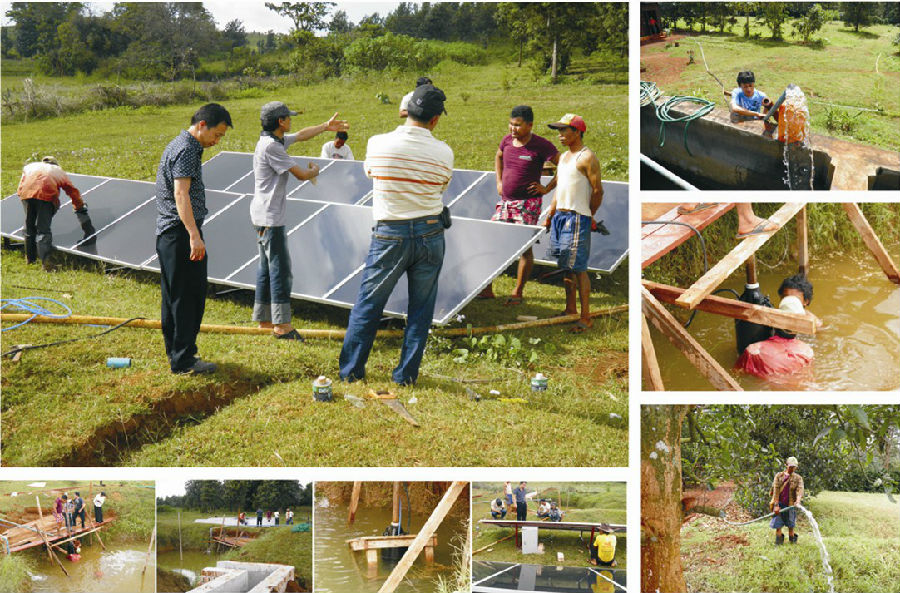 Appilication:
Appilication:
submersible pump
for deep well or water tank or pond or small lake
for irrigation of a farm cover around 5000 m2
For all kinds of irrigation: flood /sprinkling/ drip
Product specification:
flow rate:4000 liter/ hour, 32m3/day.
lift: 50m-100m
pump diameter: 238mm
well diameter more than 250mm
with BLDC motor, motor power:2000W
but only need solar power:960W, our pump can save more than 50% solar panel power.
Material:
Pump inside: stainless steel and wearable nylon,it enables our solar pump to have 10 years sevice life.
Motor length:30cm,80% shorter than other motors. So that you can pump 80% more water by our solar pump.
Certification:
3 International patent
ISO9001
CE
Warranty:2 years
- Q:Can a solar pump be used for water supply in off-grid schools?
- Water supply in off-grid schools can be achieved through the use of solar pumps. These pumps are an excellent choice for locations without access to the grid, as they rely on solar energy to function and do not require electricity from the grid. This makes them a sustainable and cost-effective solution for areas where electricity is not readily available. Solar pumps can be used to extract water from wells, boreholes, or other water sources. They can transport the water to storage tanks or directly to the school's water distribution system. They are particularly suitable for off-grid schools because they can operate independently without the need for complex and expensive infrastructure. Another advantage of solar pumps is that they are environmentally friendly. They do not need fuel and do not emit greenhouse gases during operation. They also require minimal maintenance and have a long lifespan, making them a reliable and sustainable option for water supply in off-grid schools. Additionally, solar pumps can be equipped with battery storage systems. This allows them to continue operating even on cloudy days or during the night, ensuring a continuous water supply to the school regardless of weather conditions or time of day. In conclusion, solar pumps are a viable and efficient choice for water supply in off-grid schools. They provide a sustainable, cost-effective, and reliable solution, ensuring access to clean water for students and staff in remote areas.
- Q:Can solar pumps be integrated with existing water systems?
- Yes, solar pumps can be integrated with existing water systems. These pumps are designed to be compatible with different types of water systems and can be easily incorporated into the existing infrastructure. This integration allows for efficient and sustainable water supply without the need for traditional energy sources.
- Q:Are there any limitations to using a solar pump?
- Yes, there are certain limitations to using a solar pump. One major limitation is that solar pumps are dependent on sunlight for their operation. This means that they may not be as effective or efficient during cloudy or rainy days, or in areas with limited sunlight. The amount of power generated by the solar panels directly affects the pump's performance, so if there is not enough sunlight, the pump may not be able to function optimally. Another limitation is the initial cost of installing a solar pump system. While solar pumps can save money in the long run by reducing electricity bills, the upfront costs can be significant. The cost includes not only the pump but also the solar panels, batteries, and other necessary components. This may make it less accessible for individuals or communities with limited financial resources. Additionally, solar pumps require adequate space for the installation of solar panels. The panels need to be positioned in a way that maximizes exposure to sunlight, which may require a large open area or a rooftop with unobstructed access to sunlight. In some urban or densely populated areas, finding suitable space for solar panels can be a challenge. Maintenance and repair can also be a limitation. Solar pumps require regular maintenance to ensure their efficient operation. This includes cleaning the solar panels, checking connections, and inspecting other components. If a part malfunctions or breaks, it may be more challenging to find specialized technicians or spare parts compared to conventional pumps. Lastly, the capacity of solar pumps can be limited. They may not be suitable for high-demand applications that require significant water flow or pressure. Larger-scale agricultural or industrial operations may require more powerful pumps that solar energy alone may not be able to provide. Despite these limitations, solar pumps offer numerous advantages such as energy efficiency, environmental friendliness, and long-term cost savings. It is important to carefully assess the specific requirements and limitations of your situation before deciding to use a solar pump.
- Q:What is the expected energy consumption of a solar pump system?
- The expected energy consumption of a solar pump system can vary depending on factors such as the size and efficiency of the system, the amount of sunlight available, and the water demand. However, since solar pump systems utilize solar energy as their primary power source, their expected energy consumption is generally low compared to traditional pump systems running on electricity or fuel.
- Q:Are solar pumps suitable for use in harsh weather conditions?
- Yes, solar pumps are suitable for use in harsh weather conditions. They are designed to be durable and weather-resistant, capable of withstanding extreme temperatures, heavy rains, and even snow. Additionally, solar pumps are often equipped with advanced technology and protective features that ensure their efficient operation and longevity, making them a reliable choice for various climates and weather conditions.
- Q:Are there any regulations on the disposal of solar pump components?
- The disposal of solar pump components is regulated by various environmental regulations and guidelines to ensure proper handling and minimize the impact on the environment. In the United States, for example, the Environmental Protection Agency (EPA) oversees the disposal of electronic waste, which includes solar pump components. The EPA has established specific guidelines and regulations to prevent the release of hazardous materials into the environment. In addition to federal regulations, many states and local governments have their own regulations on the disposal of electronic waste, including solar pump components. These regulations require individuals and businesses to recycle or dispose of electronic waste through approved channels, such as licensed recycling facilities or collection events. It is important to note that solar pump components may contain hazardous materials, such as lead, cadmium, or mercury. These materials can be harmful to human health and the environment if not disposed of properly. Therefore, it is crucial to follow the regulations and guidelines set forth by the relevant authorities to ensure the safe and environmentally friendly disposal of these components. To determine the specific regulations applicable to the disposal of solar pump components in a particular area, it is recommended to consult with local environmental agencies, waste management authorities, or recycling facilities. These entities can provide accurate and up-to-date information on the proper disposal methods and any specific regulations that must be followed.
- Q:Can a solar pump be used for water supply in agricultural nurseries?
- Yes, a solar pump can be used for water supply in agricultural nurseries. Solar pumps are a sustainable and cost-effective solution for providing water to agricultural nurseries as they harness solar energy to power the pump. This eliminates the need for electricity or fuel, reducing operating costs and environmental impact. Solar pumps are reliable and can efficiently pump water from various sources such as wells, rivers, or lakes, ensuring a consistent water supply for irrigation in nurseries.
- Q:How does a solar pump help in promoting sustainable development?
- A solar pump helps in promoting sustainable development by harnessing the power of the sun to provide a clean and renewable source of energy for pumping water. It reduces the reliance on fossil fuels and electricity, which in turn decreases greenhouse gas emissions and air pollution. Furthermore, solar pumps enable access to water in remote areas where grid electricity is unavailable, improving agricultural productivity, providing safe drinking water, and supporting overall economic development. This sustainable solution not only conserves resources but also contributes to the social, economic, and environmental aspects of sustainable development.
- Q:Are there any water quality requirements for a solar pump?
- Yes, there are water quality requirements for a solar pump. The specific requirements may vary depending on the type and design of the solar pump, as well as the intended use of the pumped water. However, in general, the water quality should meet certain standards to ensure the efficient and safe operation of the pump. One important requirement is that the water should be relatively clean and free from excessive sediment, debris, or large particles. This is because such impurities can clog or damage the pump, reducing its efficiency and lifespan. Additionally, if the solar pump is used for irrigation purposes, for example, the water should not contain high levels of contaminants, such as salts, chemicals, or heavy metals, which may harm plants or crops. Furthermore, the water quality should also be suitable for the specific type of solar pump being used. For instance, if the pump includes a submersible motor, the water should be free from corrosive substances that may damage the motor components. Similarly, if the pump uses a filtration system, the water quality should not exceed the maximum allowable levels for the filter's capacity to effectively remove impurities. It is important to consult the manufacturer's guidelines and specifications for the solar pump being used to determine the specific water quality requirements. Additionally, conducting periodic water testing and maintenance can help ensure that the pump operates optimally and remains in good condition.
- Q:Can a solar pump be used for mining applications?
- Yes, a solar pump can be used for mining applications. Solar pumps are commonly used in remote areas where there is no access to electricity or where it is not cost-effective to use traditional power sources. They can be used for various mining applications such as dewatering, slurry transfer, and water supply in mines. The use of solar pumps in mining operations can help reduce operational costs, minimize environmental impact, and provide a reliable and sustainable source of power.
1. Manufacturer Overview |
|
|---|---|
| Location | |
| Year Established | |
| Annual Output Value | |
| Main Markets | |
| Company Certifications | |
2. Manufacturer Certificates |
|
|---|---|
| a) Certification Name | |
| Range | |
| Reference | |
| Validity Period | |
3. Manufacturer Capability |
|
|---|---|
| a)Trade Capacity | |
| Nearest Port | |
| Export Percentage | |
| No.of Employees in Trade Department | |
| Language Spoken: | |
| b)Factory Information | |
| Factory Size: | |
| No. of Production Lines | |
| Contract Manufacturing | |
| Product Price Range | |
Send your message to us
Solar Water Pump 3DS-10-100
- Loading Port:
- China Main Port
- Payment Terms:
- TT OR LC
- Min Order Qty:
- -
- Supply Capability:
- 300 sets /month
OKorder Service Pledge
OKorder Financial Service
Similar products
New products
Hot products
Hot Searches
Related keywords








